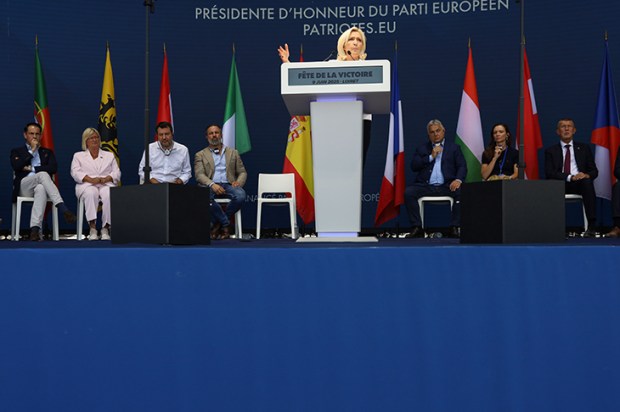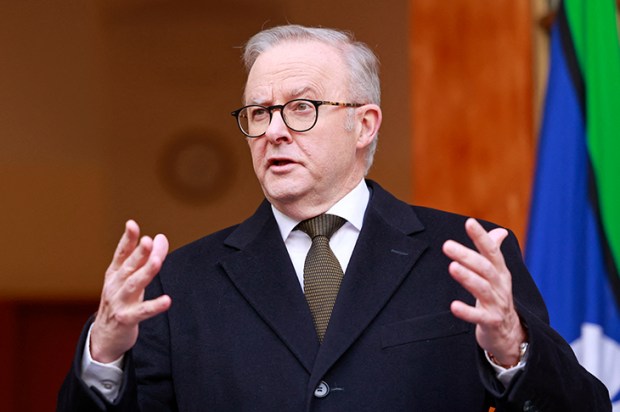Recently, the names of the three Nobel prize winners in economics were announced. Fifty years ago, one of the best Nobel prize decisions went to Friedrich Hayek. Hayek along with Milton Friedman was one of the few Nobel Laureates to promote free markets together with an open society.
It made headlines in the Wall Street Journal recently when the American Economic Association (AEA) snubbed Friedrich Hayek on the 50th anniversary of the awarding of his 1974 Nobel prize. It is conventional to celebrate such anniversaries at the AEA annual meeting, but it was refused.
Forsaking my far more modest contribution, it was as recent as 2011 that some of AEA’s most distinguished economists including Kenneth Arrow and Robert Solow chose Hayek’s 1945 masterpiece, The Use of Knowledge in Society, as one of the top twenty articles published in the AEA’s one hundred year history. From go to woke in just thirteen years.
Hayek’s article addressed a fundamental issue: how does a society function and how is wealth created when the relevant information is dispersed in small pieces over a large population? What is needed includes consumer valuation, knowledge of production, and how the necessary resources can be supplied. His solution pointed to the coordinating role of prices:
‘Fundamentally, in a system where the knowledge of the relevant facts is dispersed among many people, prices can act to coordinate the separate actions of different people in the same way as subjective values help the individual to coordinate the parts of his plan.’
Transmission of information to a centralised bureau could never work. The implication being that communist and socialist governments relying on five-year plans could never survive. In essence, Hayek was predicting the demise of the Soviet Union 35 years later.
Although my father, T.W. Swan, was no fan of Hayek, he ended up lambasting India’s five-year planning process after being employed to work on it.
In Hayek’s bestselling 1944 book, The Road to Serfdom, he points out that we have progressively abandoned freedom in economic affairs without which freedom in personal and political affairs has never existed. He is quite blunt in pointing out that socialism means slavery, or an inevitable drift to serfdom.
While his Nobel Laureate citation does not explicitly mention The Road to Serfdom, it does mention Hayek’s criticism of decentralised ‘market socialism’.
The book’s theme is that fascism including National Socialism is not a counter to socialism but an inevitable outgrowth of socialism.
It is the call for quick and determined government action that leads to the appeal for a ‘strong leader’ and the undermining of ‘slow-moving’ democracy This is the ploy of UK Labor Prime Minister Keir Stammer’s speech: ‘A decisive government, a government prepared to use its power for justice, opportunity and equal respect’. Perhaps we can be grateful for the failure of the Albanese government to do anything decisive other than promote the magnificently failing Voice campaign.
In his Noble prize acceptance speech, Hayek rejected the Keynesian idea that we can permanently assure full employment by maintaining total money expenditure at an appropriate level. He warns that increasing aggregate demand leads to misallocation of resources which is likely to make ‘later large-scale unemployment inevitable’.
The economics profession has not gone down Hayek’s and Adam Smith’s free-market decentralised path and has become over-reliant on mathematical models. It is much easier to assume a representative investor sets all the prices in the economy by some magical means that remain unspecified.
If there is a representative investor in the economy, then there cannot be a counterparty to that investor. Hence Hayek’s decentralised market mechanism is ruled out by default. Nearly all economic models rely on a central planner for implementation as the market mechanism is not even understood.
It is much easier to assume a centralised decision maker to determine economic policy. But this decision maker is a de facto centralised planner in a socialist economy. So, without naming it, much economic modelling ends up with an implicit socialist framework and helps to explain why Hayek is unpopular with much of the economics profession. It is an embarrassment to the thousands of economists proposing implicit Marxist solutions to non-problems.
Hayek participated in over sixty meeting and presentations during his exhausting five-week Australian visit in 1976. His views like those of Milton Friedman who visited the year before did not go down well with the anti-market prime minister, Malcolm Fraser, who rejected all the pro-market Campbell Committee reforms.
By contrast, Hayek’s approach to markets and in particular, Hayek’s 1949 essay, The Intellectuals and Socialism, pointing out that it is intellectuals and the elite, not working men, who are responsible for socialism, has underlaid Greg Lindsay’s Centre for Independent Studies. Hayek points out that socialism stemmed entirely from abstract theories provided by the intellectual elite, and it took years of intellectual prosecution prior to any adoption by the working class.
The subsequent market reforms in the 1980s of the Hawke-Keating government and the floating of the dollar owe a great deal to Hayek’s supporters.
Are Australian academic economists any better than members of the AEA? No. In an open letter to the prime minister on 19 April 2020, nearly 300 largely academic economists rejected Sweden’s successful approach to Covid leaving the Swedish economy open and unlocked down with populace free to live lives largely unaffected by Covid.
Australian economists rejected the idea that there is a trade-off between the public health and economic aspects of the crisis with entirely the priority to lock down. Victorians were locked in their homes for a world-record period. I do not observe economists claiming credit for this today. Locking people in their homes is the very antithesis of Hayek’s free and open society.
In short, the ideas of two free-market Nobel Laureates, Friedrich Hayek and Milton Friedman, have had a huge beneficial effect on the lives of millions.
The economics profession should be lauding, not snubbing, the finest minds in economics.
Got something to add? Join the discussion and comment below.
You might disagree with half of it, but you’ll enjoy reading all of it. Try your first month for free, then just $2 a week for the remainder of your first year.












